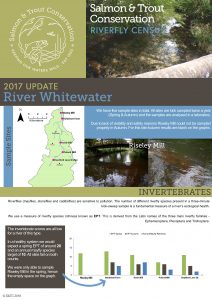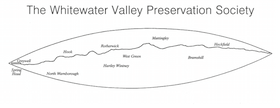The Environment Agency (EA) is currently consulting on proposals to change its permit charges. The EA proposes to increase significantly the cost of applying for Environmental Permits for, amongst other reasons, habitat improvement work in rivers.
As part of the Loddon Fisheries and Conservation Consultative (LFCC), the Whitewater Valley Preservation Society shares their disappointment with these proposals. The LFCC states:
“This type of work is regularly carried out by volunteers or small organisations working on shoestring budgets. The schemes are often funded by small grants which sometimes prohibit the use of the grant to cover costs such as permit application. Even when allowable, the charges could swallow up as much as 25% of the grant.
Yet the aims of these projects are typically to improve riverine habitats for fish and other wildlife, enhance diversity and to reduce flood risk. This fully supports EA policy objectives including the achievement of good qualitative and quantitative status of all water bodies under the Water Framework Directive (WFD). The projects give a valuable opportunity to engage the wider community in the planning and implementation of schemes.
These increases are likely to have a number of potential affects including:
- reduced number of projects
- reduced value / impact of projects
- increased likelihood of unregulated work
- hamper ‘on the ground’ relations of front-line EA staff
- de-motivate the enthusiasm of volunteers
This could result in increased habitat degradation, reduced flood and drought resilience, all compromising the EA’s ability to meet those WFD targets.
The effects of the proposed changes could have been mitigated by a much needed revision of the poorly drafted permit exemptions, but we have been advised that this is outside the scope of the consultation and not currently under consideration.
The LFCC is generally very supportive of the EA and we hugely value the work of some very well motivated and talented local staff, who we feel deserve far more support than can be given in the current economic climate. However despite appreciating the financial restraints that the EA are currently encountering we feel that these proposals are hardly an appropriate route to raise capital.”
Further reaction and advice for making responses is provided by The Angling Trust.
We encourage as many individuals as possible to reply to the Environment Agency Consultation, which closes on January 26th.
Both the Whitewater Valley Preservation Society and the LFCC will be lodging formal objections to the scale of the proposed increases. We will publish the WVPS response on our website as soon as possible.


